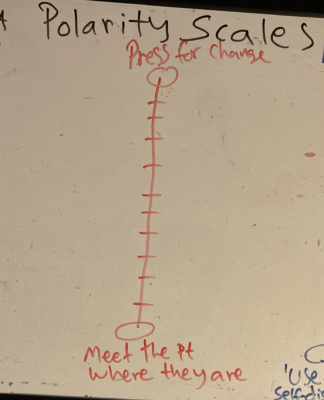According to the American Psychological Association about 40-50% of first time marriages in the United States end in divorce, with the divorce rate increasing in subsequent marriages. With divorce rates so high, it is likely that you or someone you know has been impacted by a divorce. Divorces can get messy when it involves just adults, but it can get even messier and confusing when kids and teens are involved. Not only are you managing your own feelings, you now have the reality that your adult decision is now inevitably going to impact your child’s life in some way. Each divorce and how it’s effect on a family is unique and so of course needs will vary, but here are three simple and basic principles from Krista Smith’s divorce for teens group curriculum, “The Big D“, that I love and teach all the families I work with. Here are three basic things to avoid during a divorce involving children:
1. Do not use your child as a messenger.
Ex: “Tell your mom/dad…”
2. Do not use your child as a spy or detective for information.
Ex: “Tell me about your mom/dad’s new house, friend etc.”
3. Do not us your child as a dumping station.
Ex: “If you only knew what your mom/dad did to me…”
Let’s take a closer look at each…
1. Do not use your child as a messenger.
I know, you probably do not want to talk to your ex-spouse if at all possible. There were probably communication issues that lead to the divorce in the first place, right? So, it can be tempting to use your child to buffer the fact that you still have life decisions to make together. Don’t do it. Remind your child that divorce is an adult problem and requires adult solutions. Making your a child a messenger can really make them feel responsible for the information and discussions that should not even involve them in the first place. Even if the information does involve them, it can be comforting to a child to know that you and your ex-spouse are on the same page. This can also help curtail any triangulation that your child may try doing. This change may take some practice if you’ve already used your child as a messenger. Next time a situation comes up tell your child, “I will talk with Dad about that.”
2. Do not use your child as a spy or detective for information.
It is tempting to ask your child about your ex-spouse, especially if he or she is not very open with you. But again, remember that asking your child about information regarding the life and choices of your ex-spouse can really create a lot of stress for them. It is not a good idea to ask a lot of specific questions. Your children pick up on a lot more subtext than we give them credit. They may not know why it doesn’t feel right, but trust me, they can tell that there’s something else behind all your specific questions. For this reason, do not try to get the inside scoop on finances, “new friends”, schedules, jobs, plans etc. from the child. As an adult in this situation you need to speak directly to the other adult about this information, not your kiddo.
3. Do not use your child as a dumping station.
Your child is not supposed to be your main source of support, best friend, or primary confidant. It’s tempting to begin asking your child to side with you, but it does put them at a major disadvantage in experiencing positive feelings about the other parent. Your child should be able to experience love for both parents as he or she feels comfortable; don’t get in the way of this development (even if you think your spouse is a snake!). Chances are, if you refuse to speak ill of your ex-spouse your child will be able to sort out the let downs on their own. But let your child come to these realizations. Your main function is unbiased support for your child not necessarily your ex-spouse, so don’t taint the support with confusing messages.
Remember, your child CAN remain happy and well adjusted after a divorce.
These sorts of things can increase the child’s feelings of responsibility OR make the child feel as though a choice must be made between the parents. Remember, it is not the divorce that creates life difficulties for the child in and of itself. It is the way the divorce is handled that can cause long-term negative impacts. It is possible for you and your family to undergo these transitions without severe negative impacts on your children’s emotional health.



















